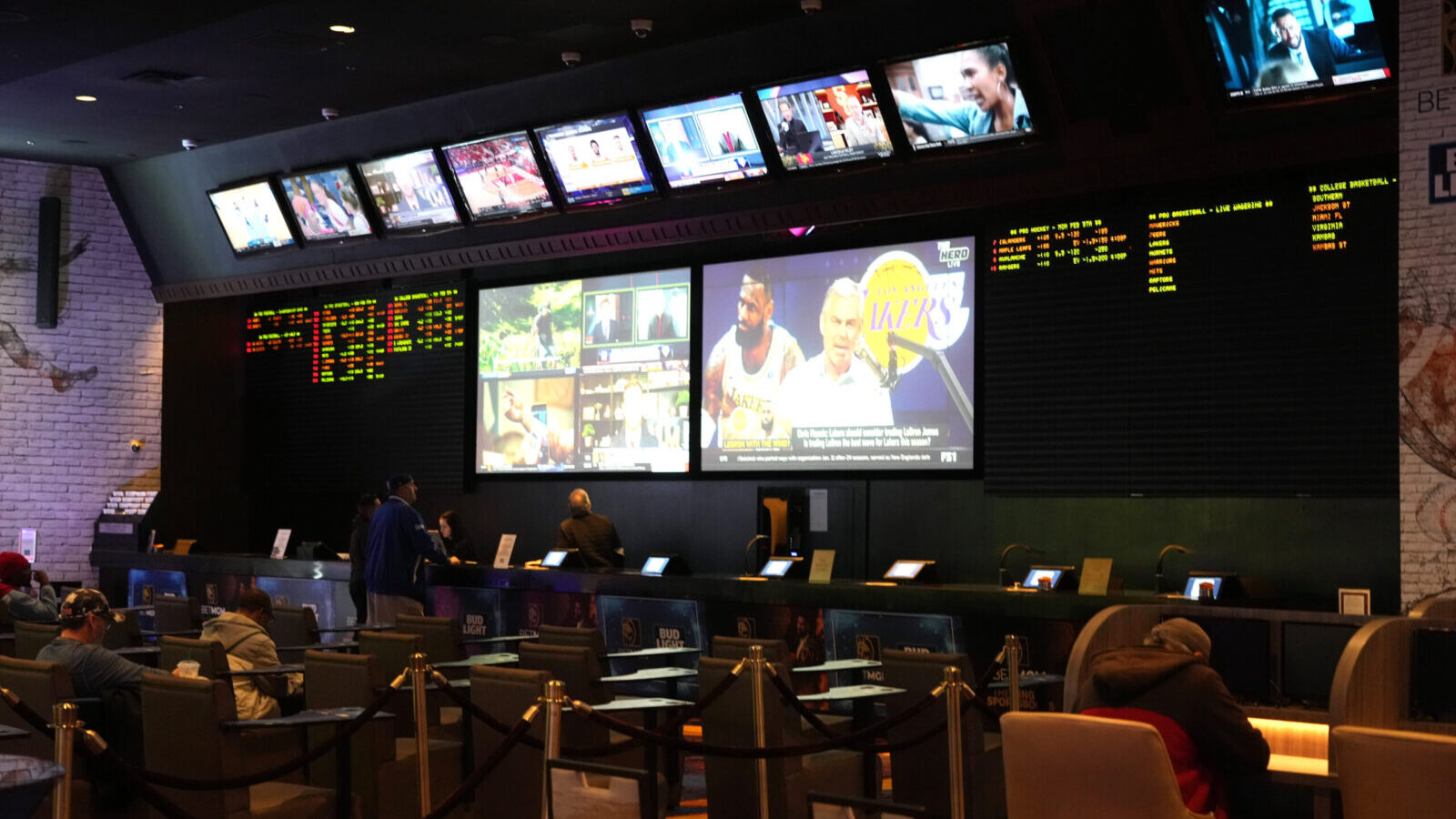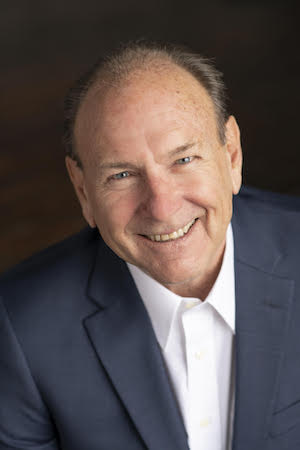Schuetz: At A Sports Betting Counter, It Is Hard To Ignore A Player
The rise of virtual betting is fueling a disconnect between operator and customer
9 min

When I ran casinos, my management style was, to borrow David Packard’s term, “to manage by walking around.” I was never one to sequester myself in an office.
I wanted to avoid being told about what was happening on the property. I wanted to see for myself if my store was busy, how the associates were feeling, how the folks in the heart of the house were behaving, and all that running a hotel/casino kind of stuff.

I also wanted the employees to know I was there and was happy to visit with them. Time after time, they would teach me something about my business that made me smarter.
It also allowed me to hear from the market. Often, when customers found out who I was, they would come to me with a compliment or complaint. And I always thanked them for helping me understand the details of my operation and improve my business model.
As a CEO or senior executive, I often freaked out the casino folks and guests by pushing in on a dice game and starting to deal. If nothing else, it earned me some street cred from the folks working the floor, who seemed to respect that I learned the business from the ground up.
In all fairness, a casino environment can be a scary place if a person does not understand how it works, and many executives involved in running casinos do not know how a casino works outside the context of a spreadsheet or their particular department.
Stardust memories
Two of my favorite stops on my casino walkabouts were the dice pit and the sportsbook. When a dice pit or sportsbook is cooking, there is an energy that is a complete rush. This energy always seemed to touch my soul. It was my happy place. This was particularly true in the Stardust Race & Sports Book when I ran the Stardust Casino.
It was always an honor to be behind the counter of the Stardust Book, for that book was the center of gravity in the betting world for many years. The leadership and staff at that book had a ton of experience in booking bets, and there was little that they had not seen.
This was recognized by folks in law enforcement, especially at the federal level. When the FBI had an issue or curiosity about something in the betting world, they said we were always one of their first calls. (I took that as a compliment.) Moreover, when we called them, which we needed to do occasionally when we could not make sense of line or money moves, they always took our call or got back to us immediately.
One time at the Stardust, I called the hotel operator and asked her to call our FBI contact. A few seconds later, I heard his beeper go off. He was about 20 feet away and was in the building looking for me.
Being behind a busy sportsbook counter is semi-organized insanity. There were days at the Stardust when the containers we had for cash were not big enough to hold all of the money being pushed across the counter at us. It was crazy.
In those days, someone like poker great Stu Ungar would walk in with a bucket full of cash or chips and want to get down on the afternoon baseball plays, which were scheduled to lock out about eight minutes after he arrived. Cash would be flying everywhere, with instructions as to about 10 separate bets … and the lockout clock was rolling.
What a rush.
The greatest joy of all of this was to watch my dear friend Scott Schettler, the very smart and tough gentleman who ran our book, stand in the middle of all of this. It was always comforting to know that in the midst of this chaos and craziness, Scott had a plan and knew how to handle damn near anything that might go right or wrong.
The operators speak … sort of
I started thinking about all of this when I was recently invited to speak at a session on bet limiting sponsored by the Massachusetts Gaming Commission. The first part of the session allowed the betting operators to explain themselves regarding the topic of limiting.
The operators primarily sent lawyers and compliance people to the session. I immediately noticed they did not talk or think like the bookies or serious bettors I was used to hearing. They seemed to speak a different language.
I also sensed that the operators did not have much respect for bettors. They also did not seem to be in touch with their customers other than as a data point. And they seemed to feel they were the victims by even having to be at this meeting.
It then struck me that the folks representing the operators probably had little, if any, experience behind a betting counter. When a person learns the business behind a counter, they know, whether they want to or not, what the players think — because they tell you what they think, in very clear and often loud terms. People who work behind the counter also learn betting. If they don’t, they won’t make the cut.
There was an instance at the MGC session where one of the operators wondered why limiting was being addressed, and the response was that the MGC was getting email complaints. That seemed to be news to the operator, which does seem to indicate that they need to be more in touch with their markets.
When you lose the counter to operate in the virtual world, the player loses his voice, making it easier for the operator to become alienated and disconnected from the bettor. I think this is important to understand, given many of the issues surrounding betting today.
I honestly believe that if most of this operator group were placed in charge of a betting counter in a physical book, especially in a busy time, they would have little idea what to do other than get sick or faint — yet this was the group that was sent to explain to the regulators how betting worked.
Bookmakers or accountants?
An article on ESPN.com written by David Purdum quoted bettor advocate Brian Chappell about his impressions of the meeting. I thought Brian hit the mark with: “Like the U.K., the large [bookmaking] corporations they have licensed aren’t bookmakers; they are accountants who find risk unacceptable.”
I was also fascinated by the total absence of detail provided by the operators in the limited analytic materials they quoted. Talking percentages sounds scientific and exact, but the one thing that was pounded into me in too many years of graduate school was the need to define terms. When these folks talk about 1% of something, it would be nice if they were to clearly define the numerator and denominator. I can prove I am nice 100% of the time if you let me define the time frame and measuring process. Quoting percentages in a regulatory hearing without defining them is something close to junk science.
I also found the discussion about “advantage players” offensive. Billy Walters, generally understood to be one of the most successful and smartest sports bettors on the planet, touched on this in a recent article in The Washington Post: “The vast majority of these people that they’re throwing out haven’t done anything wrong,” he said. “If you violate a rule or your money’s dirty, fine. But a guy who bet you on a ballgame because a quarterback was out and you didn’t move your line, you’re going to throw him out for that? You need to throw out the guy running your sportsbook.”
I was heading to a sandwich shop for lunch a few days ago, and as I was walking in, a customer who was leaving handed me a leftover coupon he had. I used it. Now I am in great fear that I will be banned or limited at that sandwich shop for coupon abuse, especially if that sandwich shop follows the apparent operating model of some online betting shops.
One of the mind games that bothered me in the operators’ presentation was a presenter’s effort to conflate advantage play with something bad or inappropriate. Walters often points out that these online sports betting operators have the most un-American model in the world, where they punish people who try to learn, improve, and become more intelligent.
I like to joke that these operators will amend their voluminous terms and conditions to include a provision that watching a show on ESPN about betting is an effort of one of these disgusting advantage players to gain an edge on the system. That will be on page 258 of their terms and conditions, right before the need to forfeit the bankroll of any bettor removing the label on one of their mattresses.
Compliance is lacking
One understands why 2024 has been marked by the federal government demanding in its settlements with several big gaming companies that they spend more money on adding better compliance controls or face prosecution. Think about that for a bit. Regulators should pay close attention when large gaming firms agree with federal authorities to spend more on compliance to avoid being prosecuted. That means that the feds think there are major players in the gaming world where compliance routines are clearly lacking.
If these books have to ban folks for coupon or bonus abuse, they may have a pretty slow group in the promotional design and compliance departments. Maybe if they had not incinerated hundreds of millions of dollars to capture a whopping 17% of the vote in California in 2022 to introduce betting, they could spend a bit more money on payroll in the bonus controls and compliance areas.
I am still fascinated by an operator pointing out during last week’s MGC meeting the terrible sin of arb-ing (arbitrage). In the books I was involved in, if we decided to move the number, we did it to slow down the money on one side of the number, and to get money on the other side. The simplest statement of the model was, “Take a bet, move the number.”
It is very curious economics when an operator in a somewhat competitive model argues that if you enhance the market’s liquidity and help an operator balance, we will punish you. It is important to understand that money is a fungible asset. I do not know why a betting operator wants to kick out a player for giving them money. (Sorry, Roxy. I am with Spanky and Jeff Benson on this one.)
The betting operator’s victimhood drama also includes courtsiding. Parents who take their kids to an athletic event should know that if they pick up their phones, the secret courtside sportsbook police may be watching them.
OK, it is not really that bad … yet.
Courtsiding threatens operators because someone at an event may know something before the operator’s risk room knows something, which could cost the operator money.
Here is a wild thought: Do not offer a bet you cannot safely offer. If your technology can be bypassed by anyone with a phone, an event ticket, and a betting account, you should not be handling that market. Quit crying and spend time on developing better technology and controls.
Two words of advice: Get smarter
As I was thinking about what I heard the other day in the MGC session, I concluded it was a fair amount of whining by people who have customers who appear materially smarter than they are — and their solution has been to make sure the smart folks can’t bet and castigate them for seeking out an advantage.
It seems that the sportsbook operators have two basic complaints. One is that there are people smarter than they are, making being profitable a lot of work. If you dislike doing business with people who appear more intelligent than you are, I suggest you get more intelligent.
The second complaint is that customers also exploit the companies’ weak promotional designs and compliance controls. Well, build better controls or ditch the market. To listen to the operators is like listening to the guy who left his wallet on his car’s dashboard every night with the windows down and then started complaining when it went missing.
The most fascinating aspect of the whole presentation for me was looking to read the vibes of the commissioners. The chair demonstrates many attributes of a politician, working to keep everyone happy. That is a good quality for a chair. Commissioner Brad Hill seems to keep his cards close to his vest, so to speak, and I cannot help but sense that the industry has not instilled a great deal of trust with commissioners Eileen O’Brien and Nakisha Skinner. (I have always believed no one can read a room better than a woman.)
The latest news in the betting space is Sen. Richard Blumenthal and Rep. Paul Tonko’s effort to launch a federal sports betting bill. In case anyone is curious, this is happening because the sports betting industry is proving itself incapable of anything approaching self-discipline or self-regulation.
Moreover, self-regulation is difficult for the online sports betting industry because those folks don’t appear to understand sports betting.
I suggest that this will not end well, and the industry has itself to blame. The folks at the center of it should have tried to learn the business rather than making it up as they went along.
—
Richard Schuetz entered the gaming industry working nights as a blackjack and dice dealer while attending college and has since served in many capacities within the industry, including operations, finance, and marketing. He has held senior executive positions up to and including CEO in jurisdictions across the United States, including the gaming markets of Las Vegas, Atlantic City, Reno/Tahoe, Laughlin, Minnesota, Mississippi, and Louisiana. In addition, he has consulted and taught around the globe and served as a member of the California Gambling Control Commission and executive director of the Bermuda Casino Gaming Commission. He also publishes extensively on gaming, gaming regulation, diversity, and gaming history. Schuetz is the CEO American Bettors’ Voice, a non-profit organization dedicated to giving sports bettors a seat at the table.






